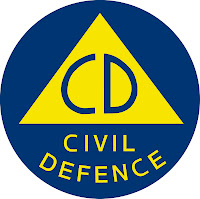
A US university class project may just have been
too successful.
Journalism students investigated the life-sentence murder conviction of Anthony McKinney. They posted their findings online, including key witnesses recanting trial statements, allegations of police intimidation and two potential suspects named by a man who says he was at the murder.
In response, the state has reopened the case...andsubpoenaed a range of material from the university, including off-the-record interview notes, student memos, even the
grades of the Investigative Journalism class.
The uni says the students should be considered "reporters" and therefore be protected from having to divulge such information. It will fight in court to only hand over
on-the-record documents and statements — not background information or any private grades.
The state calls the students "investigators" not reporters, and wants to ensure students did not approach the case with a bias, and that grades were not linked to the investigation's results.
(This university project has an impressive record: since it started in 1999, student reporters have helped exonerate eleven convicts, including five on Death Row.)
But if the case goes against the students, could this place the growing phenomenon of "citizen journalism" on legal thin ice? Would Joe Public still be allowed to capture/distribute a news-worthy event with a video-camera or mobile phone? How much news would we have missed, had it not been for "citizen journalists"? Remember the Rodney King police beating (1991)...the London Underground bombings (2005)...the Indonesian Tsunami (2004)...these "social voyeurs" have established a movement which would surely now be impossible to stop.


![]()
 The Austereo radio network, in partnership with US internet radio station Jelli, will unveil a new 24-hour national digital radio station, Hot30 Jelli, next month.
The Austereo radio network, in partnership with US internet radio station Jelli, will unveil a new 24-hour national digital radio station, Hot30 Jelli, next month.  On its website, listeners will see the live queue of songs to be played and can vote whether each song "rocks" or "sucks". The songs played will always be the ones with the most votes, and the next song to play is decided a split-second before the last song finishes. The initiative pampers to young people's desire for "instant gratification".
On its website, listeners will see the live queue of songs to be played and can vote whether each song "rocks" or "sucks". The songs played will always be the ones with the most votes, and the next song to play is decided a split-second before the last song finishes. The initiative pampers to young people's desire for "instant gratification".

















 (many thanx to Richard Phelps' "Lifestream" for the Oz ads...)
(many thanx to Richard Phelps' "Lifestream" for the Oz ads...)
 NASA’s LCROSS (Lunar CRater Observing and Sensing Satellite) mission has sent a booster rocket at twice the speed of a bullet to impact near the moon’s South Pole, to see if there's ice mixed in the soil of the crater’s floor. Scientists think there may be billions of litres of it...but so far no proof.
NASA’s LCROSS (Lunar CRater Observing and Sensing Satellite) mission has sent a booster rocket at twice the speed of a bullet to impact near the moon’s South Pole, to see if there's ice mixed in the soil of the crater’s floor. Scientists think there may be billions of litres of it...but so far no proof.










